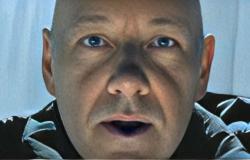Nobody expected that Karate Kid could become what it still is today: a pillar of teen storytellingwhat give it 80s of which it is still the symbol today purer for the adolescent target, it has reached the present day, with its structure and its process. 40 years after the incredible success that made it a myththe epic of Daniel LaRusso continues also thanks to the series Cobra Kaito exercise a unique charm, by virtue of very specific characteristics, of qualities that never go out of fashion.
A great little film that has become the very symbol of a decade
It’s easy to say the ’80s. Karate Kid still today it is a fundamental piece of that eragiven its capacity to be coming-of-age films, epic sports dramas and teen films as only then could it be possible. Yet, the fan-series Cobra Kaifrom an event on YouTube, has become a series capable of incredible ratings. Daniel LaRusso and his discovery of Karate, still fascinates us today because it contains all the typical elements of that 80s cinema which had a unique, exhilarating flavour, which spoke to us of adventure, redemption, victory and dreams coming true, of good triumphing over evil. At the same time, it remains a praise of that youth subculture that has essentially disappeared todaycrushed by digital identity. It was also a hymn to minoritiesthose that the mainstream narrative of the big and small screen, during the decade dominated by Ronald Reagan and AmeriKa (the one strictly with a K), had totally overshadowed.
Karate Kid it was born as a perfect mix between what the screenwriter Robert Mark Kamen he had lived at 17, being bullied at school and learning Karate to defend yourselfand that Rocky Balboa who in those years had made Sylvester Stallone a hero for every inhabitant of the globe. Stallone himself joked about itbut if you think about it, Karate Kid It also contains many elements typical of Mark Twain: a young man discovering a new world, to face alone, forced to face his fears and grow in spite of them. All within a film that he married an epic capable of putting sterile realism in its pocket without second thoughts. After all, what matters in a story is not reality, but its ability to strike the right chords. And in those 80s, in which the audiovisual market was totally centered on the teen universe, Karate Kid was able to stand as a symbol of originality and inventiveness.
Jackie Chan and Ralph Macchio will be the protagonists of the new film by Karate Kid
The new couple will resume their respective characters in a film that will bring together two strands of the franchise: that of the 1980s and that of the 1910s. Filming will begin in the spring
For those who were young then, Karate Kid it was a fundamental step. It contained everything that adolescence was, or at least what every teenager felt inside. The notes of Bill Contie Joe Esposito they accompanied their races on BMX bikes, with leather jackets, bandanas, picturesque looks, walkmans, audio cassettes… but Karate Kid it is also a metaphorical visual story. Daniel who arrives near Los Angeles is a Latino, he is different from the wasps who live in the area, he almost seems like an immigrant. As soon as he arrives at the new school, he becomes a target for Johnny Lawrence (William Zabka) and his gang of thugs. Karate Kid ultimately it is a film that talks to us about bullying and does it very well, showing it to us as a product of the world of adults and their misconceptions, represented by John Kreese’s bloody Dojo (Martin Kove), where Johnny and the others are subjected to a sadistic and destructive cult of violence.
The casus belli concerns the attentions of Ali Mills (Elizabeth Shue), and it is not something casual, because while LaRusso treats her with sensitivity, Lawrence sees her almost as his property and even in this Karate Kid serves as narrative antithetical to the clichés of its time. The film of John G. Avildsen. on the one hand it glorifies that decade of course, but on the other it denounces the cult of victory, of supremacy, of appearances, the same ones that were the mantra of the yuppies and of the line of thought of Reaganite America. Just one of the many very pleasant paradoxes of a story where Master Miyagi by a fantastic Pat Morita (who didn’t even know Karate) with his people training methods that are bizarre to say the least, is a symbol of karma, a tolerant and constructive approach. A legendary performance by the former Japanese-American comedian, which also became a prototype for a lot of other cinematographic sensei over time, with its being a mix between Yoda and Jackie Chan.
A story capable of being passed down from generation to generation
Karate Kid still today has a unique ability not only to show us the evolution of the protagonist, who from an insecure and weak young man begins to gain confidence in his own possibilities. The film is a guide to the very meaning of martial arts, that is, knowing oneself, self-improvement understood as mental and psychological, not just physical. Above all, he talked (in the decade of Rambo and co) about how violence was not the answer to anything. It remains an incredibly American talefor optimism and exceptionalism within reach, but simultaneously it distanced itself from the clichés of the teen movie which made the “Brat Pack” a money machine in that decade at the time. Yet, he doesn’t give up talking to us about first loves, first parties and the rules of the world of youth. We are in a universe where adults, apart from Miyagi and Kreese (yin and yang), are essentially absent, and that’s why it still works today, given that only the point of view of Daniel, Johnny and the others matters.




